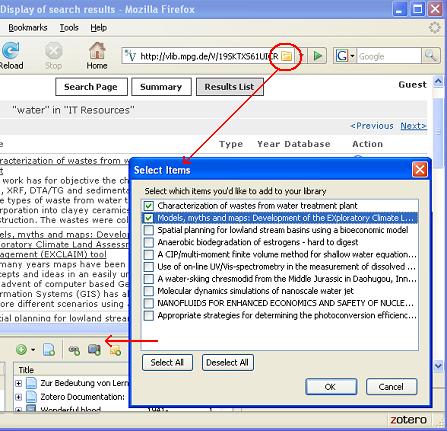Another challenging question from a fellow librarian in the Max Planck Society:
How can I add OpenURL links to a reference list created with EndNote?
That is a tough one! Fact is that EndNote itself is OpenURL enabled, meaning the software can be configured to use a specific link resolver for full text linking and more (see the instructions provided by the IVS-BM for details). But it looks like this feature is not available while generating a bibliography with EndNote. Or at least, I haven’t discovered a trick to export references plus OpenURLs with any built-in means.
However, it is possible to customize existing Output Styles, e.g. by adding a COinS to each entry of a reference list created with this style. I tried it, but found the result sub-optimal (see examples below). The major problem is that EndNote’s Output Style Manager does not support URL-encoding of values and that would be required to generate valid COinS. The OpenURL Referrer extension seems to be gentle enough to accept them nevertheless, but Zotero rejects the import. What a bummer!
Example Bibliography (with COinS*)
Adam, G., Anke, H., Boland, W., & al., e. (2000). Roempp encyclopedia natural products. Stuttgart: Thieme.
Adam, G., Schmidt, J., & Schneider, B. (1999). Brassinosteroids. Progress in the Chemistry of Organic Natural Products, 78, 1-46.
Adam, G., & Schneider, B. (1999). Uptake, transport and metabolism. In A. Sakurai, T. Yokota & S. D. Clouse (Eds.), Brassinosteroids: Steroidal Plant Hormones (pp. 113-136). Tokyo: Springer.
* You don’t see a COinS? Check the corresponding web page for additional information.

